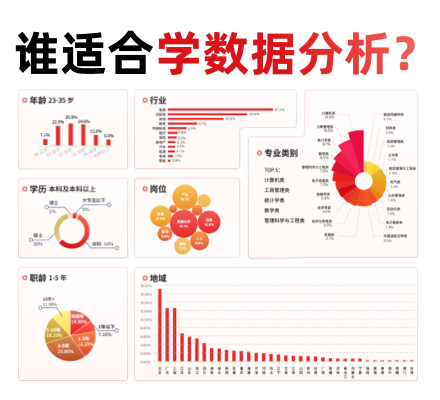非负矩阵分解与潜在Dirichlet分配的主题提取¶
这是一个在语料库上应用sklearn.decomposition.NMF和sklearn.decomposition.LatentDirichletAllocation并且提取主题结构的加法模型的例子。输出是一个主题列表,每个主题表示为术语列表(没有显示权重)。
非负矩阵分解有两个不同的目标函数:Frobenius范数, 以及广义 Kullback-Leibler散度。后者等价于Probabilistic Latent Semantic Indexing.。
默认参数(n_samples / n_features / n_components)应该使示例在几十秒内运行。您可以尝试增加问题的维度,但请注意,NMF中的时间复杂度是多项式的。在LDA中,时间复杂度与(n_samples * iterations)成正比。
Loading dataset...
done in 1.631s.
Extracting tf-idf features for NMF...
done in 0.360s.
Extracting tf features for LDA...
done in 0.367s.
Fitting the NMF model (Frobenius norm) with tf-idf features, n_samples=2000 and n_features=1000...
done in 0.420s.
Topics in NMF model (Frobenius norm):
Topic #0: just people don think like know good time make way really say ve right want did ll new use years
Topic #1: windows use dos using window program os application drivers help software pc running ms screen files version work code mode
Topic #2: god jesus bible faith christian christ christians does sin heaven believe lord life mary church atheism love belief human religion
Topic #3: thanks know does mail advance hi info interested email anybody looking card help like appreciated information list send video need
Topic #4: car cars tires miles 00 new engine insurance price condition oil speed power good 000 brake year models used bought
Topic #5: edu soon send com university internet mit ftp mail cc pub article information hope email mac home program blood contact
Topic #6: file files problem format win sound ftp pub read save site image help available create copy running memory self version
Topic #7: game team games year win play season players nhl runs goal toronto hockey division flyers player defense leafs bad won
Topic #8: drive drives hard disk floppy software card mac computer power scsi controller apple 00 mb pc rom sale problem monitor
Topic #9: key chip clipper keys encryption government public use secure enforcement phone nsa law communications security clinton used standard legal data
Fitting the NMF model (generalized Kullback-Leibler divergence) with tf-idf features, n_samples=2000 and n_features=1000...
done in 0.975s.
Topics in NMF model (generalized Kullback-Leibler divergence):
Topic #0: people don think just right did like time say really know make said question course let way real things good
Topic #1: windows thanks help hi using looking does info software video use dos pc advance anybody mail appreciated card need know
Topic #2: god does jesus true book christian bible christians religion faith church believe read life christ says people lord exist say
Topic #3: thanks know bike interested car mail new like price edu heard list hear want cars email contact just com mark
Topic #4: 10 time year power 12 sale 15 new offer 20 30 00 16 monitor ve 11 14 condition problem 100
Topic #5: space government 00 nasa public security states earth phone 1993 research technology university subject information science data internet provide blood
Topic #6: edu file com program try problem files soon window remember sun win send library mike article just mit oh code
Topic #7: game team year games play world season won case division players win nhl flyers second toronto points cubs ll al
Topic #8: drive think hard drives disk mac apple need number software scsi computer don card floppy bus cable actually controller memory
Topic #9: just use good like key chip got way don doesn sure clipper better going keys ll want speed encryption thought
Fitting LDA models with tf features, n_samples=2000 and n_features=1000...
done in 4.996s.
Topics in LDA model:
Topic #0: hiv health aids disease medical care study research said 1993 national april service children test information rules page new dr
Topic #1: drive car disk hard drives game power speed card just like good controller new year bios rom better team got
Topic #2: edu com mail windows file send graphics use version ftp pc thanks available program help files using software time know
Topic #3: vs gm thanks win interested copies john email text st mail copy hi new book division edu buying advance know
Topic #4: performance wanted robert speed couldn math ok change address include organization mr science major university internet edu computer driver kept
Topic #5: space scsi earth moon surface probe lunar orbit mission nasa launch science mars energy bit printer spacecraft probes sci solar
Topic #6: israel 000 section turkish military armenian greek killed state armenians people population attacks women israeli men weapon division dangerous jews
Topic #7: 10 55 11 15 18 12 20 00 13 93 16 19 period 14 17 23 25 22 24 21
Topic #8: key government people law public chip church encryption clipper used keys use god christian rights person security private enforcement fact
Topic #9: just don people like think know time say god good way make does did want right really going said things
# Author: Olivier Grisel <olivier.grisel@ensta.org>
# Lars Buitinck
# Chyi-Kwei Yau <chyikwei.yau@gmail.com>
# License: BSD 3 clause
from time import time
from sklearn.feature_extraction.text import TfidfVectorizer, CountVectorizer
from sklearn.decomposition import NMF, LatentDirichletAllocation
from sklearn.datasets import fetch_20newsgroups
n_samples = 2000
n_features = 1000
n_components = 10
n_top_words = 20
def print_top_words(model, feature_names, n_top_words):
for topic_idx, topic in enumerate(model.components_):
message = "Topic #%d: " % topic_idx
message += " ".join([feature_names[i]
for i in topic.argsort()[:-n_top_words - 1:-1]])
print(message)
print()
# Load the 20 newsgroups dataset and vectorize it. We use a few heuristics
# to filter out useless terms early on: the posts are stripped of headers,
# footers and quoted replies, and common English words, words occurring in
# only one document or in at least 95% of the documents are removed.
print("Loading dataset...")
t0 = time()
data, _ = fetch_20newsgroups(shuffle=True, random_state=1,
remove=('headers', 'footers', 'quotes'),
return_X_y=True)
data_samples = data[:n_samples]
print("done in %0.3fs." % (time() - t0))
# Use tf-idf features for NMF.
print("Extracting tf-idf features for NMF...")
tfidf_vectorizer = TfidfVectorizer(max_df=0.95, min_df=2,
max_features=n_features,
stop_words='english')
t0 = time()
tfidf = tfidf_vectorizer.fit_transform(data_samples)
print("done in %0.3fs." % (time() - t0))
# Use tf (raw term count) features for LDA.
print("Extracting tf features for LDA...")
tf_vectorizer = CountVectorizer(max_df=0.95, min_df=2,
max_features=n_features,
stop_words='english')
t0 = time()
tf = tf_vectorizer.fit_transform(data_samples)
print("done in %0.3fs." % (time() - t0))
print()
# Fit the NMF model
print("Fitting the NMF model (Frobenius norm) with tf-idf features, "
"n_samples=%d and n_features=%d..."
% (n_samples, n_features))
t0 = time()
nmf = NMF(n_components=n_components, random_state=1,
alpha=.1, l1_ratio=.5).fit(tfidf)
print("done in %0.3fs." % (time() - t0))
print("\nTopics in NMF model (Frobenius norm):")
tfidf_feature_names = tfidf_vectorizer.get_feature_names()
print_top_words(nmf, tfidf_feature_names, n_top_words)
# Fit the NMF model
print("Fitting the NMF model (generalized Kullback-Leibler divergence) with "
"tf-idf features, n_samples=%d and n_features=%d..."
% (n_samples, n_features))
t0 = time()
nmf = NMF(n_components=n_components, random_state=1,
beta_loss='kullback-leibler', solver='mu', max_iter=1000, alpha=.1,
l1_ratio=.5).fit(tfidf)
print("done in %0.3fs." % (time() - t0))
print("\nTopics in NMF model (generalized Kullback-Leibler divergence):")
tfidf_feature_names = tfidf_vectorizer.get_feature_names()
print_top_words(nmf, tfidf_feature_names, n_top_words)
print("Fitting LDA models with tf features, "
"n_samples=%d and n_features=%d..."
% (n_samples, n_features))
lda = LatentDirichletAllocation(n_components=n_components, max_iter=5,
learning_method='online',
learning_offset=50.,
random_state=0)
t0 = time()
lda.fit(tf)
print("done in %0.3fs." % (time() - t0))
print("\nTopics in LDA model:")
tf_feature_names = tf_vectorizer.get_feature_names()
print_top_words(lda, tf_feature_names, n_top_words)
脚本的总运行时间:(0分8.759秒)
Download Python source code:plot_topics_extraction_with_nmf_lda.py
Download Jupyter notebook:plot_topics_extraction_with_nmf_lda.ipynb




